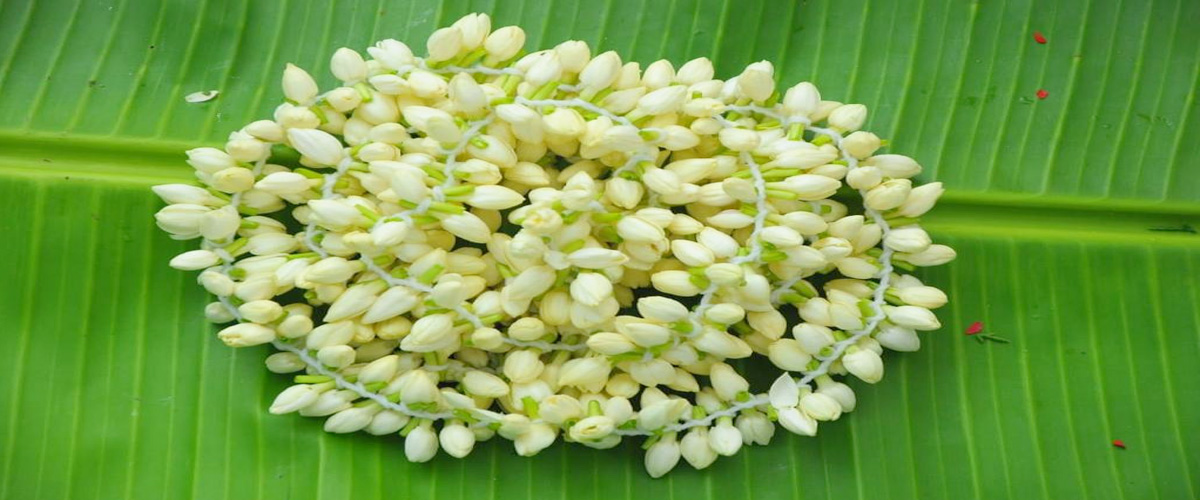Often referred to as the “Queen of Flowers,” the Madurai Jasmine is a variety of jasmine native to the areas surrounding Madurai in Tamil Nadu, South India. Known for its delicate fragrance and gentle beauty, Madurai Jasmine holds a special place in the hearts of people not only in Tamil Nadu but around the world.
1. Origin of Madurai Jasmine
Madurai Jasmine thrives in the fertile soils of Madurai, a city famed for its ancient temples and rich cultural heritage. The city’s warm and humid climate combined with its unique soil composition creates the perfect environment for jasmine cultivation. This variety of jasmine is known for its strong yet sweet fragrance, which permeates the air especially in the early morning when the flowers bloom.
2. Characteristics of Madurai Jasmine
The flowers of Madurai Jasmine are white with five distinct petals forming a star-like shape. The buds are generally small and tightly packed, giving way to soft, fragrant blossoms. Unlike other jasmine varieties, Madurai Jasmine’s scent is unique — intense yet sweet and long-lasting.
3. Cultural Significance
Madurai Jasmine holds deep cultural and religious importance in Tamil Nadu. It is widely used in daily life as well as in special occasions like weddings, religious festivals, and celebrations. Tamil women, in particular, traditionally wear these flowers in their hair as a symbol of good fortune and prosperity.
Considered sacred, Madurai Jasmine is often used in temple offerings and religious rituals. The strong association between the flower and devotion enriches temple surroundings with a divine aura, adorning statues of deities and enhancing the spiritual atmosphere.
4. Economic Importance
Madurai Jasmine plays a significant role in the local economy. The demand for these flowers is high both domestically and internationally, supporting numerous farmers and florists. Farmers around Madurai dedicate large acres of land, often small family-run farms, to jasmine cultivation. These flowers are sold in local markets and also reach major cities like Chennai, Bengaluru, and international destinations such as Dubai and Singapore.
Beyond the fresh flowers, Madurai Jasmine is economically valuable in the fragrance industry. Essential oils extracted from the flowers are used in perfumes, soaps, and essential oil products, making it a prized export commodity.
5. Madurai Jasmine and Its Role in Health
Apart from its beauty and fragrance, Madurai Jasmine is also valued in traditional medicine. Essential oils extracted from the flowers are believed to possess various therapeutic properties. In aromatherapy, the jasmine scent is used to calm the mind and relieve stress. Traditional Tamil medicine sometimes employs jasmine flowers for treating skin ailments, headaches, and improving sleep quality.
6. Sustainability and Challenges
Despite its popularity, cultivating Madurai Jasmine presents challenges. The flowers require precise conditions of water, sunlight, and soil nutrients. The region faces issues like soil erosion, water scarcity, and the need for sustainable farming practices. Jasmine farmers have begun exploring organic farming and methods to maintain flower quality to protect their crops and ensure long-term sustainability.
7. Madurai Jasmine Festival
Every year, Madurai celebrates a grand Jasmine festival, where the streets fill with the fragrance of jasmine. The festival features flower markets, cultural events, and religious ceremonies, bringing the entire city to life. This celebration honors the beauty and cultural importance of Madurai Jasmine and highlights its integral place in the region’s cultural fabric.


